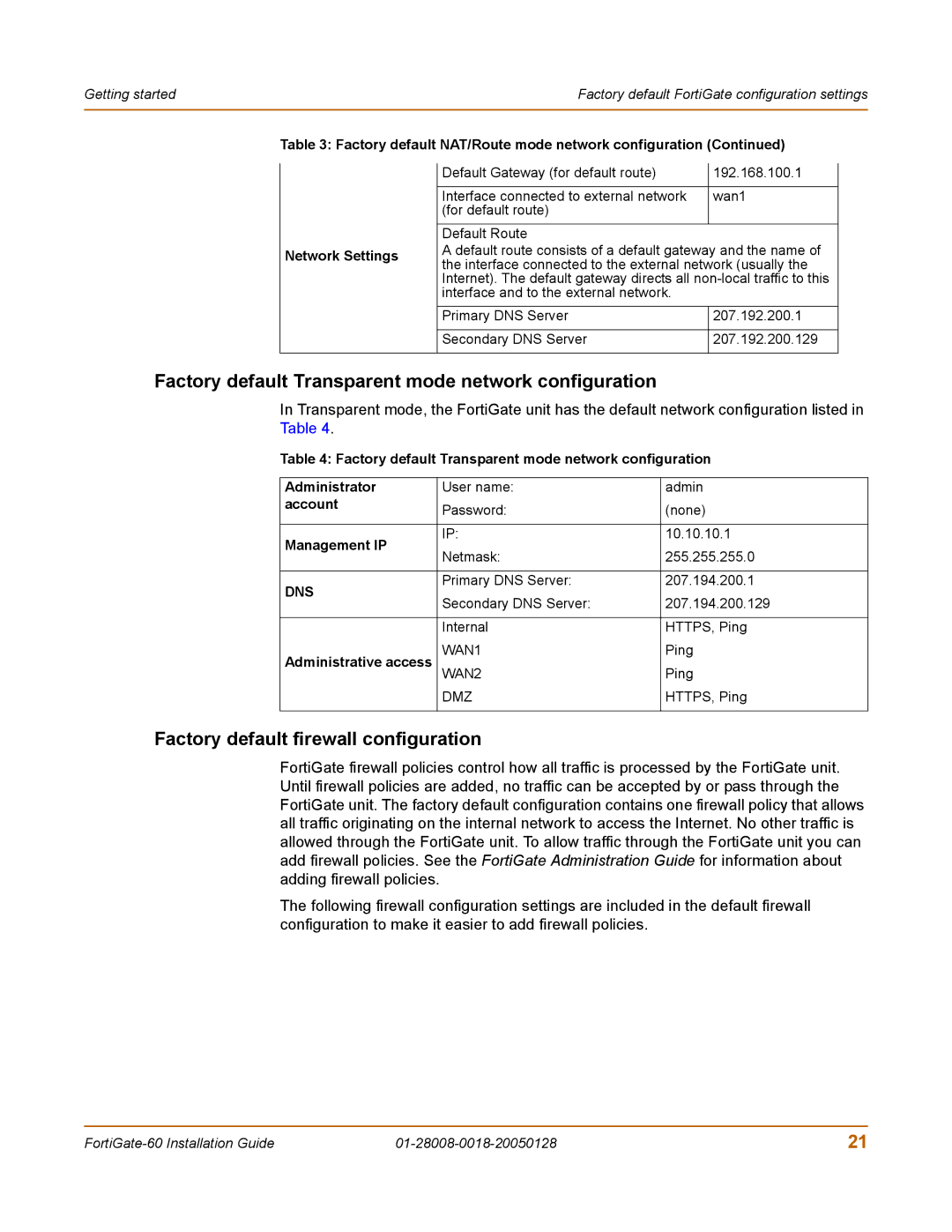
Getting started | Factory default FortiGate configuration settings |
|
|
Table 3: Factory default NAT/Route mode network configuration (Continued)
Network Settings
Default Gateway (for default route) | 192.168.100.1 |
Interface connected to external network | wan1 |
(for default route) |
|
|
|
Default Route
A default route consists of a default gateway and the name of the interface connected to the external network (usually the Internet). The default gateway directs all
Primary DNS Server | 207.192.200.1 |
|
|
Secondary DNS Server | 207.192.200.129 |
|
|
Factory default Transparent mode network configuration
In Transparent mode, the FortiGate unit has the default network configuration listed in Table 4.
Table 4: Factory default Transparent mode network configuration
Administrator | User name: | admin | |
account | Password: | (none) | |
| |||
|
|
| |
Management IP | IP: | 10.10.10.1 | |
Netmask: | 255.255.255.0 | ||
| |||
|
|
| |
DNS | Primary DNS Server: | 207.194.200.1 | |
Secondary DNS Server: | 207.194.200.129 | ||
| |||
|
|
| |
| Internal | HTTPS, Ping | |
Administrative access | WAN1 | Ping | |
WAN2 | Ping | ||
| DMZ | HTTPS, Ping | |
|
|
|
Factory default firewall configuration
FortiGate firewall policies control how all traffic is processed by the FortiGate unit. Until firewall policies are added, no traffic can be accepted by or pass through the FortiGate unit. The factory default configuration contains one firewall policy that allows all traffic originating on the internal network to access the Internet. No other traffic is allowed through the FortiGate unit. To allow traffic through the FortiGate unit you can add firewall policies. See the FortiGate Administration Guide for information about adding firewall policies.
The following firewall configuration settings are included in the default firewall configuration to make it easier to add firewall policies.
21 |
